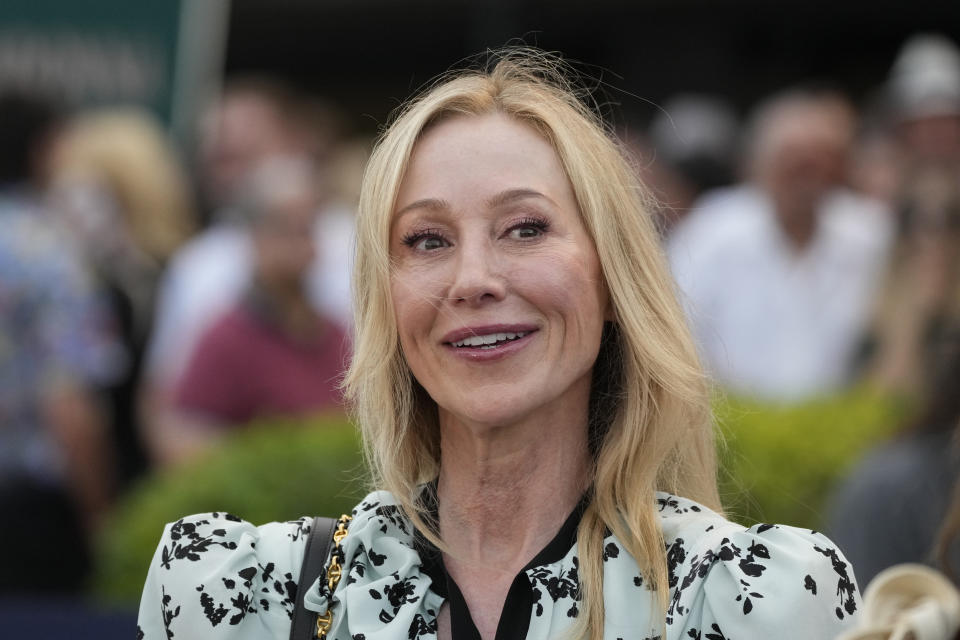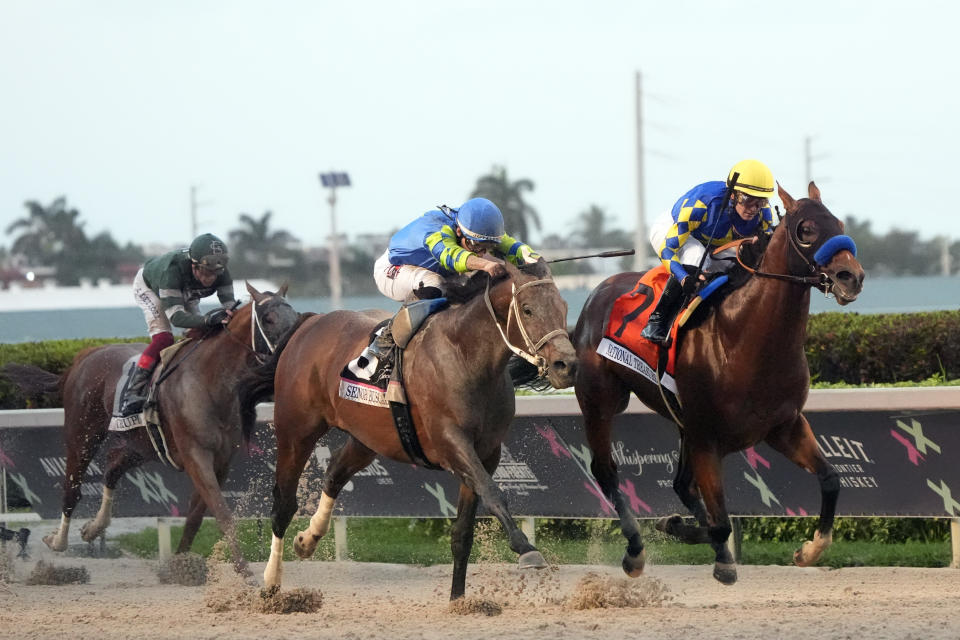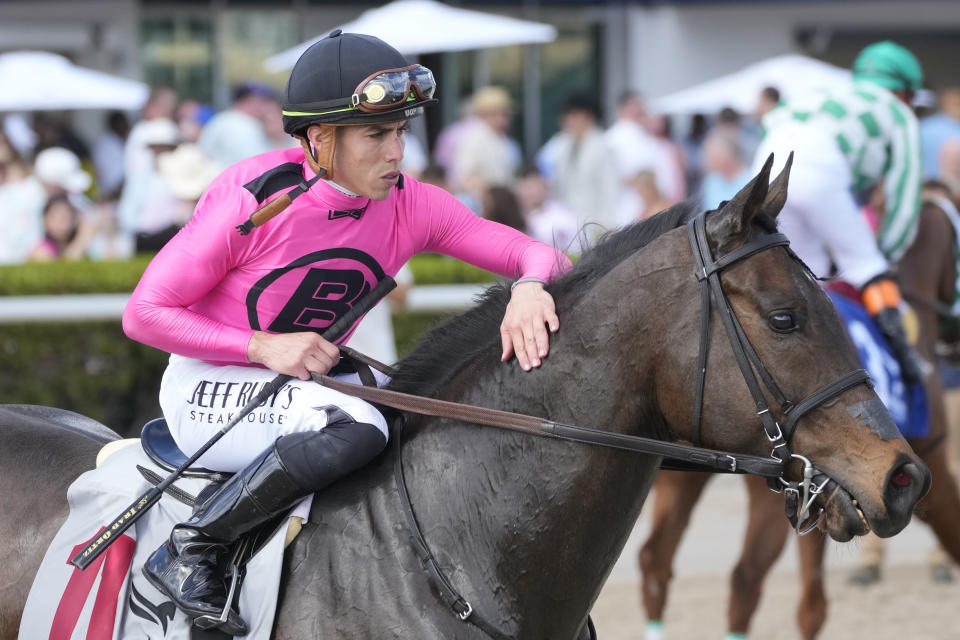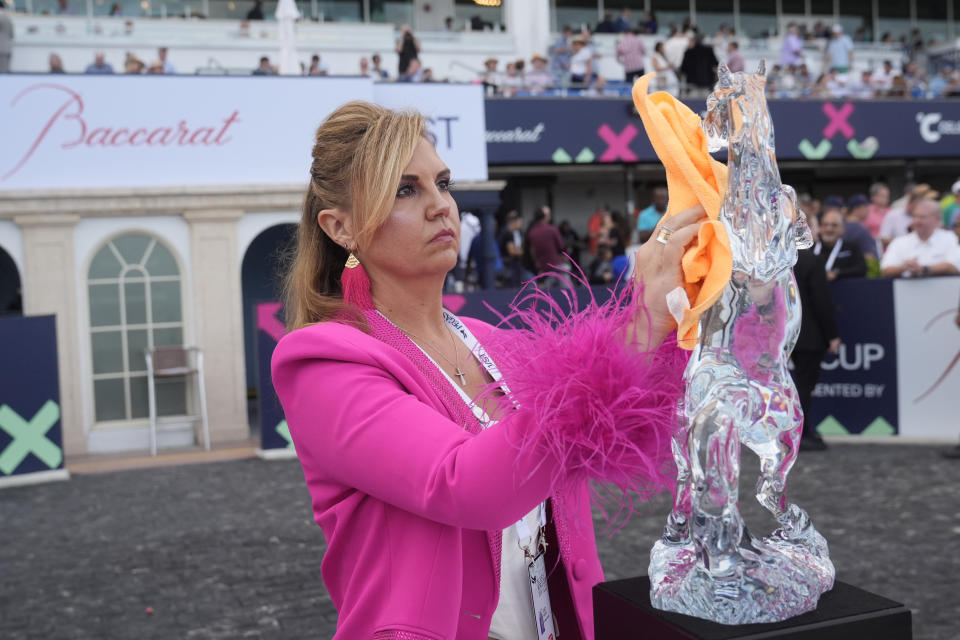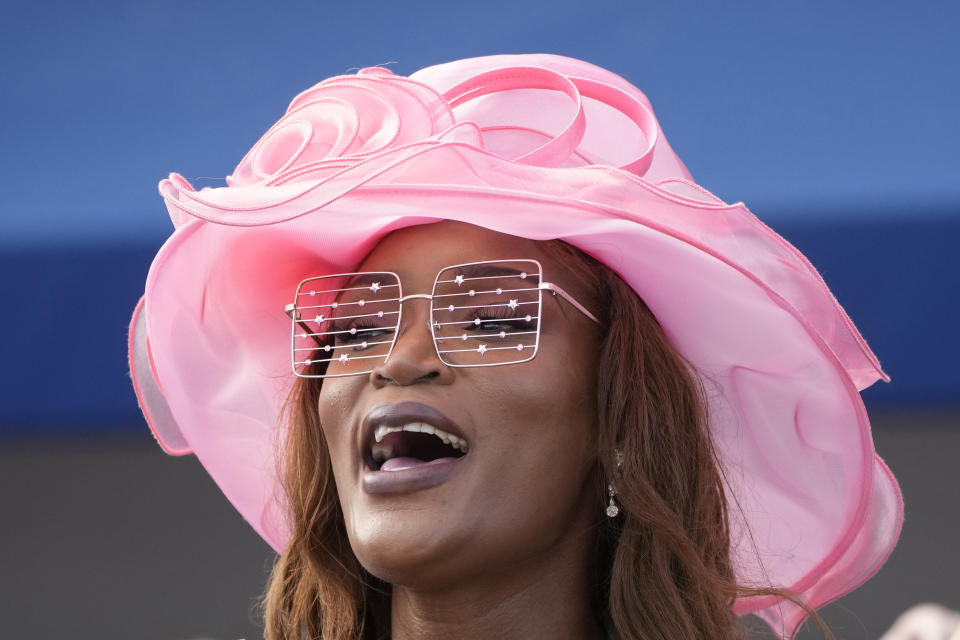With Pegasus as the spotlight, Stronach calls on racing industry to do more for retired horses
HALLANDALE BEACH, Fla. (AP) — The last time a mare named My Elusive Dream raced was more than 13 years ago. She made 10 starts in her career and ran at some of the most historic tracks in the country, places like Saratoga and Belmont and Gulfstream.
She never won. She finished second three times, third once. Career earnings: $28,510.
As tends to happen in racing, when an on-track career is done, the off-track career of breeding and being sold begins. My Elusive Dream was sold a couple of times, delivered at least eight foals over the years and wound up destined for a South Korean slaughterhouse. And that’s when her story made it to the desk of Belinda Stronach, the chairwoman and CEO of 1/ST Racing, which operates Gulfstream Park and other tracks.
Fast forward to the happy ending: My Elusive Dream was saved — plans were made to bring her to a Florida farm owned by the Stronach Group — and Stronach is calling on the racing world to further prioritize helping retired horses.
“The industry needs to step up and do more,” Stronach said in an interview with The Associated Press.
My Elusive Dream got a second chance through a combination of efforts from People for the Ethical Treatment of Animals, a group that has routinely criticized the racing industry, and Stronach’s group.
“A life of peace, safety and comfort will no longer be an elusive dream for this horse, but the road to the slaughterhouse remains well-trodden by thousands of others in South Korea,” PETA Senior Vice President Kathy Guillermo said in a news release. “PETA thanks the Stronach Group for giving her a home and urges the American racing industry to stop selling horses to South Korea until the slaughter ends.”
Stronach has been a big force in changing the medication laws in racing to make it safer for the horses — her tracks, like Gulfstream Park, instituted many new rules before they became industry norms. She and her group are continually trying to lure younger audiences to racing, and Gulfstream not long ago added a synthetic surface along with the turf and dirt courses, with safety as one of the reasons.
In 2020, she made the call to run the Pegasus World Cup races at Gulfstream under no-race-day-medication rules for the first time.
Such a medication policy had long been in place at tracks around the world, with the rate of horses breaking down seeming far less frequent under such rules. Pegasus Day didn't miss a beat in 2020 and hasn't since; the eighth annual edition of Gulfstream's richest day was Saturday.
“In the case of My Elusive Dream, I got notified that a horse that we had some relationship with in the past, before my time, was in a kill pen in Korea,” Stronach said. “We got asked to help and said, absolutely, yes. We need to do what’s best for the horse, get her back over here and have her as a retiree here.”
Her approach to running tracks is a hybrid of sorts.
Stronach often speaks of how she has great respect for racing’s traditions. She also insists on changing with the times and thinks there can be a happy marriage between the two. Pegasus Day is an example; it’s one that horsemen look forward to because of the depth and quality of the fields (along with $4.5 million in purses for the three Pegasus races), yet it brings the elements of fashion, music and celebrities to the track on a day when even the highest-priced tickets sell out.
“I love horses and I love people,” Stronach said. “I am in a position where I can push. So, if I’m not pushing, who’s pushing? I’m very proud of what we’ve accomplished in terms of elevating the sport, in terms of the safety protocols in place for riders and for horses. It’s the right thing to do. That’s why we’re doing it.”
___
AP sports: https://apnews.com/sports

